Tank guitarists Mick Tucker and Cliff Evans remember the construction of the band’s 1984 album, Honour & Blood…
“Basically, the album started round at my flat near Heathrow Airport…” So begins the commencement of the story of one of British metal unsung classics, Honour & Blood. The band behind the album, was Tank, the man’s domicile in which it was hatched, was guitarist Mick Tucker. “Me and (former bassist/vocalist) Algy (Ward) spent a week sitting in my spare bedroom with a little Fostex four track recorder. We just put down idea after idea after idea. Then, we went in to pre-production with a drummer called Nicky Patel. He was a protégé of Jeff Beck and superb drummer. We used him for the demos. We recorded at a place called Wardhust in Kent. Every weekend we’d go down there with Algy and work on the demos in his bedroom! Then we moved to Camden Town didn’t we?”
He’s asking long-time guitar partner Cliff Evans for clarification. “Yes. But first we went for four days rehearsal at Sound Star because we’d got a new drummer, (White Spirit‘s) Graeme Crallan in”.
Tucker nods. “Then we went into the studio in Camden and just banged it out!”
Were you signed to Music For Nations at this point or were you just on an ad-hoc album-to-album sort of relationship? “We flipped from being on Music For Nations for (previous album) This Means War to Roadrunner for Honour & Blood”.
Evans: “We were on Roadrunner in the Netherlands. But their albums always went through Music For Nations at the time”.
And did they leave you to your own devices? “Yes! We had an idea what we wanted, but there was no producer. That’s the way it went. We just did it all ourselves! There was a lot of sleeping on the sofa in that studio!”
Cliff again: “The studio in Camden was called Sound Suite, and it was just around the corner from a pub called The Brecknock, where we used to go and see Iron Maiden and Angel Witch in the late seventies” Tucker interjects – “and we used to see Suggs from Madness all the time. He lived three or four doors down”.
So, that’s the scene set. Let’s get into the album. The first track was and is The War Drags Ever On. Mick, what do you remember about the hatching of that one? “We wanted a fast one as an opener. But also we wanted a sort of feel like the start of Rainbow‘s Rising. Which is funny as we ended up with a singer from Rainbow (Dougie White, incumbent behind the mic from 2008-14)! We got a few riffs together that Algy and I had. Then when we were in the studio we decided it needed an intro, so, as we did in those days we got this little keyboard out (mimes stabbing fingers haplessly on a piano)… a one-finger job!”
So when does that light bulb switch on – it needs an intro? “Well, it needed more of an impact than just maybe a drum roll to kick it off”.
And you can use it as an intro track live? “That was the idea – that it would become the opening track on the tour”.
Track two – When Hell Freezes Over. “It’s more of a bluesy sort of feel. It always reminds me a bit of Kiss. I was a big fan of Kiss. It’s more of an anthemic thing”.
So many heavy bands from that time took a bit of Kiss into their sound, didn’t they? You might struggle to make the link from one kind of metal to the other. “But it’s definitely there, yes”.
Track three is the title track. “I wrote all the music for that one. I’d had the riff for a while and Algy had an idea for the vocal already so it was quite easy to write. It came together straight off”.
If you go from the first Tank album, which I know neither of you featured on, to this, which is album number four, there’s obviously a progression from album to album. Were you conscious of continuing that on this album? “Yes. They got me in originally (on This Means War) to boost the guitar”.
Cliff adds: “The first two albums were far more punk influenced”. Mick nods. “And Algy wanted to move it into a more hard rock/metal sound. So I went down, got the job… I knew exactly what direction I wanted to go in. Big, anthemic riffs and a bit more class in the guitar playing!”
But even the singing is getting better by this album, isn’t it? There’s more singing and less barking. “Yes, there’s a bit more melody there”.
And how did that work – you’d put the guitars down first and then Algy would come up with a melody? “Yes. It helps to do the vocals last. So we’d put all the guitars down and then he’d take it away, write his lyrics, and a couple of crates of cider later we’d get the song down!”
The next track, which I must admit seemed like a strange choice to me at the time, was a cover of Aretha Franklin‘s Chain of Fools… “It was our manager Doug Smith’s idea. I said ‘no! we’ll fucking murder it!’, I just didn’t think it would work. But it did. I don’t know why, it just does!”
Evans shakes his head. “Not the best choice. Never listen to your manager!”
But it doesn’t sound out of place. You metalised it! And you can look back and smile now. “Yes”.
When you’re put in that kind of position, do you just go along with the suggestion because he’s the manager? “Well, we just went with the flow on that one”.
The next track is Wasting My Life Away. “That’s another one of my ones. I had all the music already for that. We wanted a moody ballad-type of feel. It’s a good track. The version we’ve done on Re-Ignition (the band’s current album of re-imaginings of some of their classic tracks with new singer David Readman at the mic) sounds really great. It’s probably more like how we should have done it at the time”.
It’s easy as a heavy metal fan to look back in a rose-tinted sort of way and think that all of the music by bands like Tank was just crash-bang-wallop, but it was incredibly important to add a bit of light and shade to the album, wasn’t it? “Yes. This one was very Journey-influenced. I am a big fan of Neil Schon. Some of the chords, especially in the middle eight, are very ‘Journey’. That’s what I was trying to do”.
So we’ve got Jeff Beck, Kiss, Aretha Franklin and Journey! “It’s a strange mix!”
The penultimate track was Too Tired To Wait For Love. “That was taken from a set of demos that Algy used to get the deal with Music For Nations/Roadrunner. I wasn’t involved in that at all. Algy just wanted to use it as it was so we put it on. It’s a great song”.
And what you hear on the album is just the demo? “That’s right. He just put another keyboard intro on it. Everything else was already there”.
Although Algy wrote that one, were you writing material all time? You obviously had a stockpile of riffs ready for this album. “I’m always writing. I have tons of stuff I can’t use for Tank. Music from right across the board. My favourite band is Wishbone Ash, twin guitar, country rock kind of stuff. Andy Powell and Ted Turner are fucking great guitarists”.
Cliff concurs. “Very similar to us really”. “Very similar!” laughs Mick.
The final track is Kill. “We wanted another upbeat, fast number to finish the album. It’s very Mott The Hoople-influenced, that one! (more laughter). Have a listen to Thunderbuck Ram! You’ll hear some influence there!”
Were you thinking that at the time? ‘I could use a bit of Thunderbuck Ram’? Or a couple of weeks later do you listen back and realise where something you thought you’d come up with actually came from? “It just gets lodged in the memory. Sometimes you listen back and think ‘that sounds fucking good – I can’t have come up with that!’ but you know it comes from somewhere! Ritchie Blackmore said it best. He’s nicked loads of stuff – it’s just how you disguise it!”
Honour & Blood releases again on May 27th.


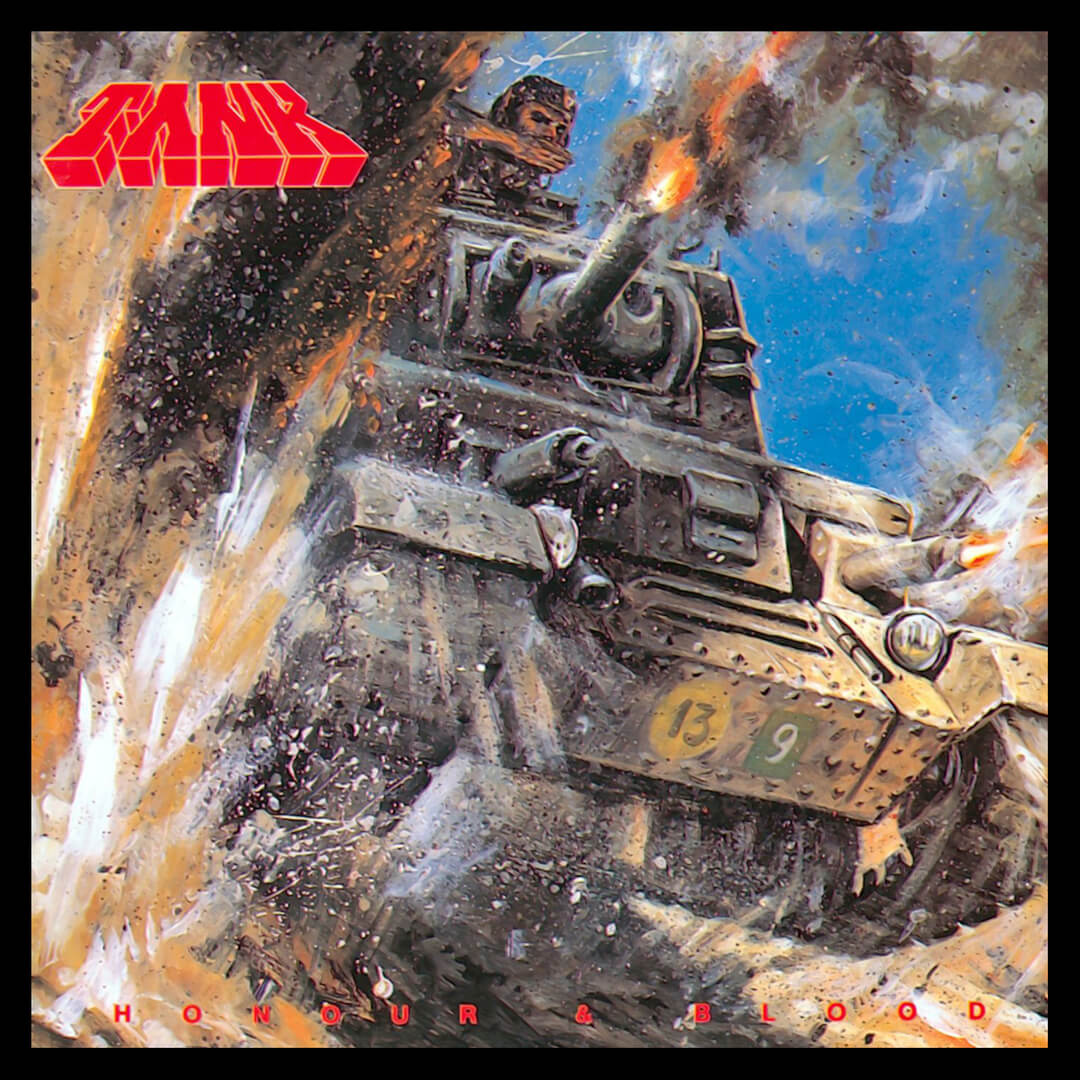
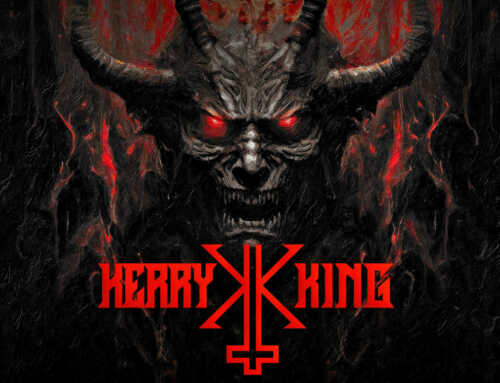
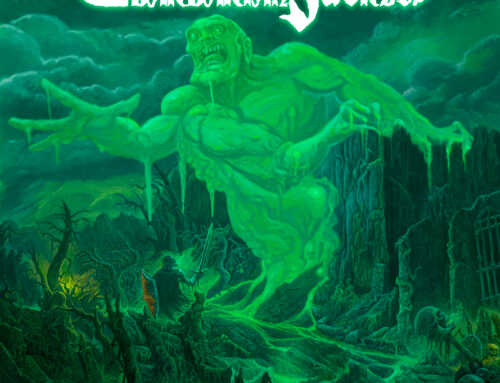
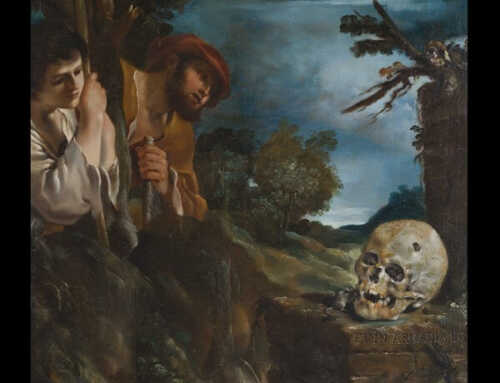
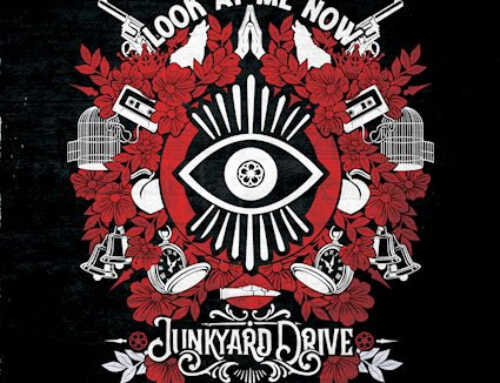
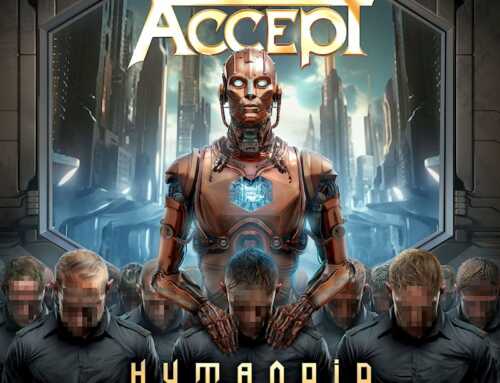
Leave A Comment